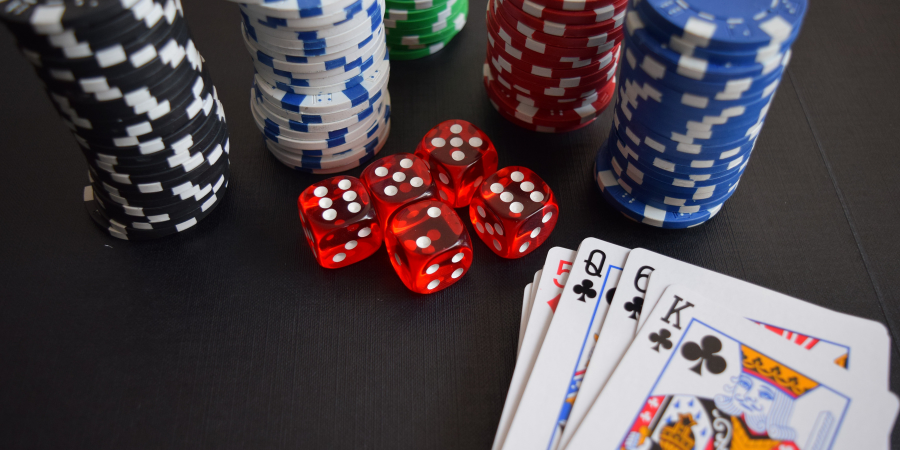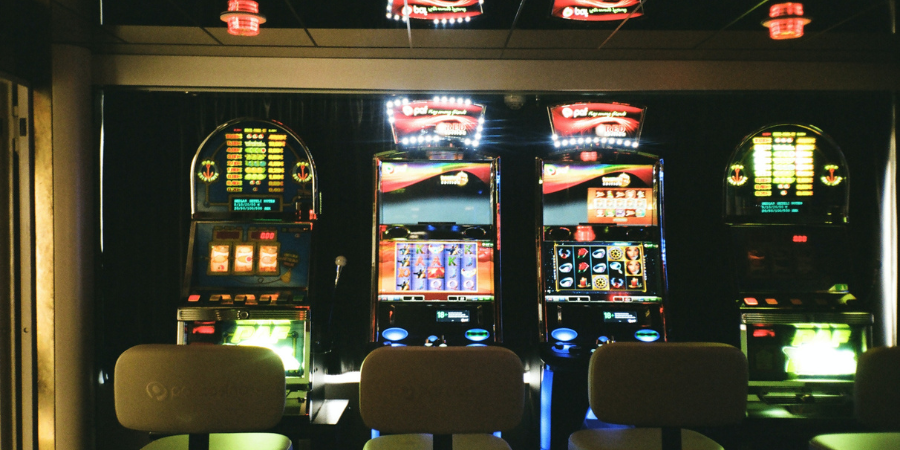
Written by:

Medically Reviewed by:
Last Updated:
August 7th, 2025
Gambling Addiction | Definition, Symptoms and Effects
- Select
- Gambling addiction
- Gambling rehab
Gambling doesn’t always look like a problem at first. It’s marketed as entertainment, framed as fun, and for some people, it stays that way. But for others, it becomes a cycle they can’t step away from with a constant loop of bets, losses, chases and emotional crashes that quietly take over everyday life.
If you’re starting to feel like gambling has moved past being a harmless pastime or you’re worried about someone else, this page will help you understand how gambling addiction forms and what recovery can actually look like.
What is gambling addiction?
Gambling addiction, also known as a gambling disorder, occurs when gambling becomes compulsive. It’s not always about how much money is lost or how often someone bets, but more about how much control they’ve lost. A person with a gambling addiction keeps going back, even when they know it’s damaging their relationships, health, finances or mental wellbeing.
Unlike substance addictions, gambling addiction is behavioural. But the brain activity is remarkably similar. Dopamine floods in during a win or even just the anticipation, and over time, the brain begins to crave that rush. That’s how it becomes less about winning and more about needing to gamble to feel anything at all.
Why gambling addiction can take hold?
There’s no single path to gambling addiction. For some, it starts with boredom. For others, it’s a way to escape stress, loneliness or anxiety. What they all share is the feeling that gambling offers something, excitement, distraction, comfort, that everyday life doesn’t.
Gambling’s unpredictability also plays a role. The random nature of wins and losses keeps the brain engaged, much like a slot machine keeps spinning just long enough to make you think the next win is around the corner. The brain taps into this, and studies have shown that something called ‘reward anticipation’ can be a driving factor in a gambling addiction.
The rise of online gambling has made it even harder to escape. The ability to bet from your personal device, at any time of day, in total privacy, has changed the landscape. With no physical chips or cash exchanging hands, the losses can rack up fast before reality sets in.
The toll of gambling addiction
Gambling addiction doesn’t always show up in obvious ways. It can chip away at your life gradually, affecting your health, finances, relationships and sense of self. Left unchecked, the effects often grow deeper and more difficult to manage alone.
Over time, these mental health issues become more frequent and more intense. There’s even the unfortunate risk of a higher chance of suicide, as discovered through targeted research into the connection between the two.
The losses can feel impossible to recover from. But rather than stop, many keep gambling in a desperate attempt to win it back. This is known as chasing losses, and it’s one of the most dangerous traps a gambler can fall into.
Family life often suffers and children within this bubble might feel neglected. Friends may stop reaching out if they’re constantly let down. As the person becomes more isolated, gambling fills even more of the emotional space that relationships once occupied.
Signs of gambling addiction?
Gambling addiction doesn’t always look like chaos. It can be quiet and well-hidden. But there are signs to look out for that suggest gambling is no longer under control.
Psychological signs:
- Feeling restless or irritable when trying to cut back
- Thinking constantly about betting or previous wins
- Gambling to escape stress, boredom or emotional discomfort
- Feeling a strong urge to gamble after a loss
- Experiencing depression, anxiety or low self-worth
Behavioural signs:
- Hiding gambling activity from loved ones
- Borrowing money, selling possessions or missing bill payments
- Skipping work, social events or responsibilities to gamble
- Lying about how much time or money is spent on gambling
- Trying to stop but always going back
Consequences
- Accumulating debt or being unable to pay for essentials
- Strained or broken relationships
- Losing interest in hobbies or activities once enjoyed
- Feeling trapped or unable to see a way out
Spotting even a few of these could mean it’s time to reflect on your relationship with gambling.
Am I addicted to gambling?
If gambling feels like it’s become something you can’t step away from, asking yourself a few honest questions might help bring some clarity.
- Do you feel an urge to gamble even when you know it could cause problems?
- Have you tried to stop or cut back but struggled to do so?
- Do you gamble when you feel low, stressed or bored?
- Is gambling affecting your finances, relationships or work?
- Do you feel guilt, anxiety or shame after gambling?
Even answering yes to one or two of these might mean gambling has become more than a casual activity. If you’re already wondering whether there’s a problem, that might be the sign you need.
What recovery can look like
Gambling addiction can feel isolating, but recovery doesn’t have to be. At Primrose Lodge, we’ve created a structured gambling addiction programme that supports you every step of the way.
The programme begins with a full assessment so we can understand what led you here. From there, you’ll take part in therapies like CBT and DBT, alongside one-to-one counselling and group support, to help you rebuild control and trust in yourself again.
We also offer holistic treatments such as art therapy, yoga and meditation to help manage stress and reconnect you with the parts of life that gambling may have replaced.
Once your residential stay ends, your recovery will continue through our aftercare programme. You’ll have access to ongoing support so that the progress you’ve made doesn’t stop when you walk out the door.
If you’re ready to take back control, Primrose Lodge is here to help you start that process.





